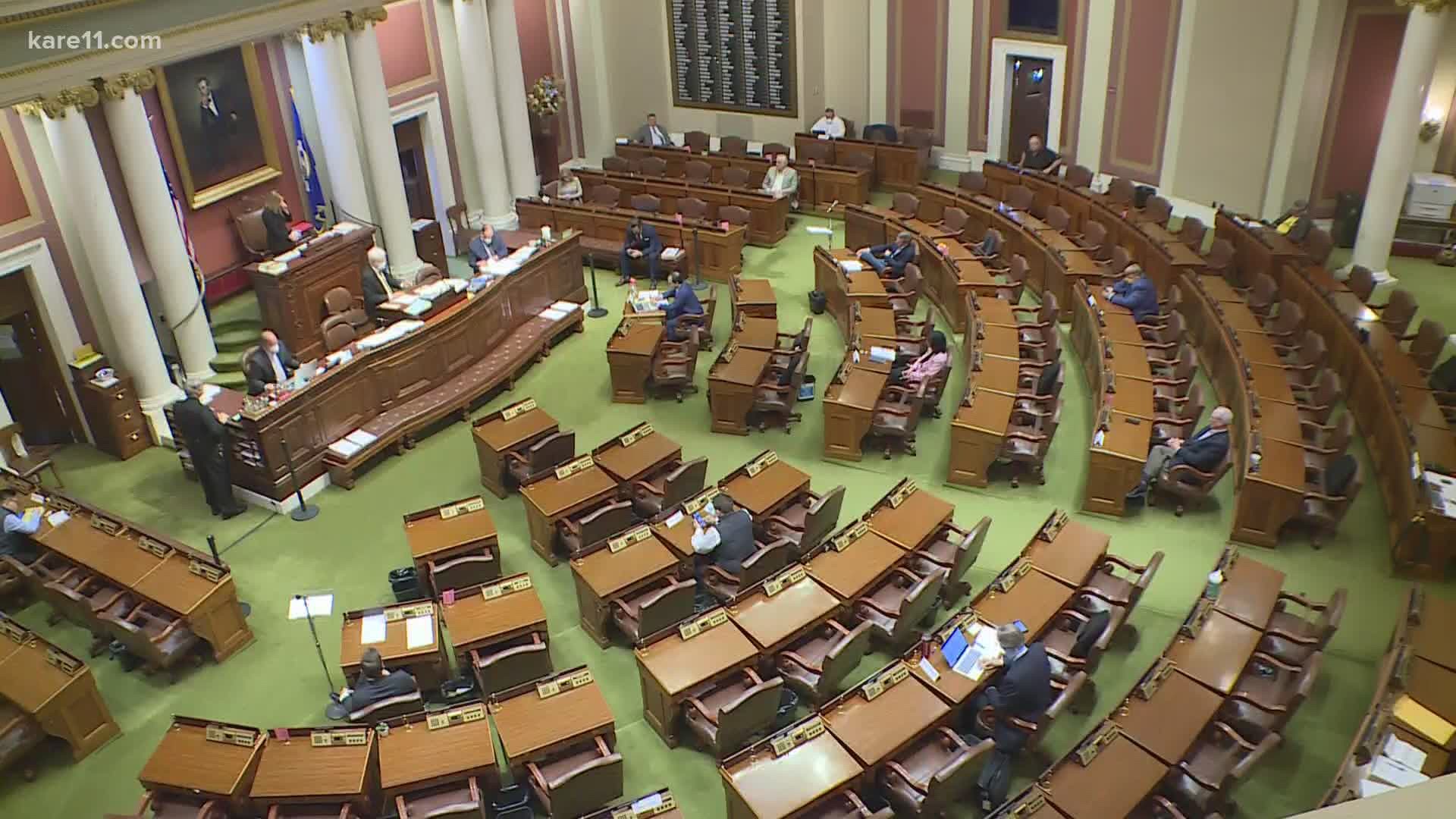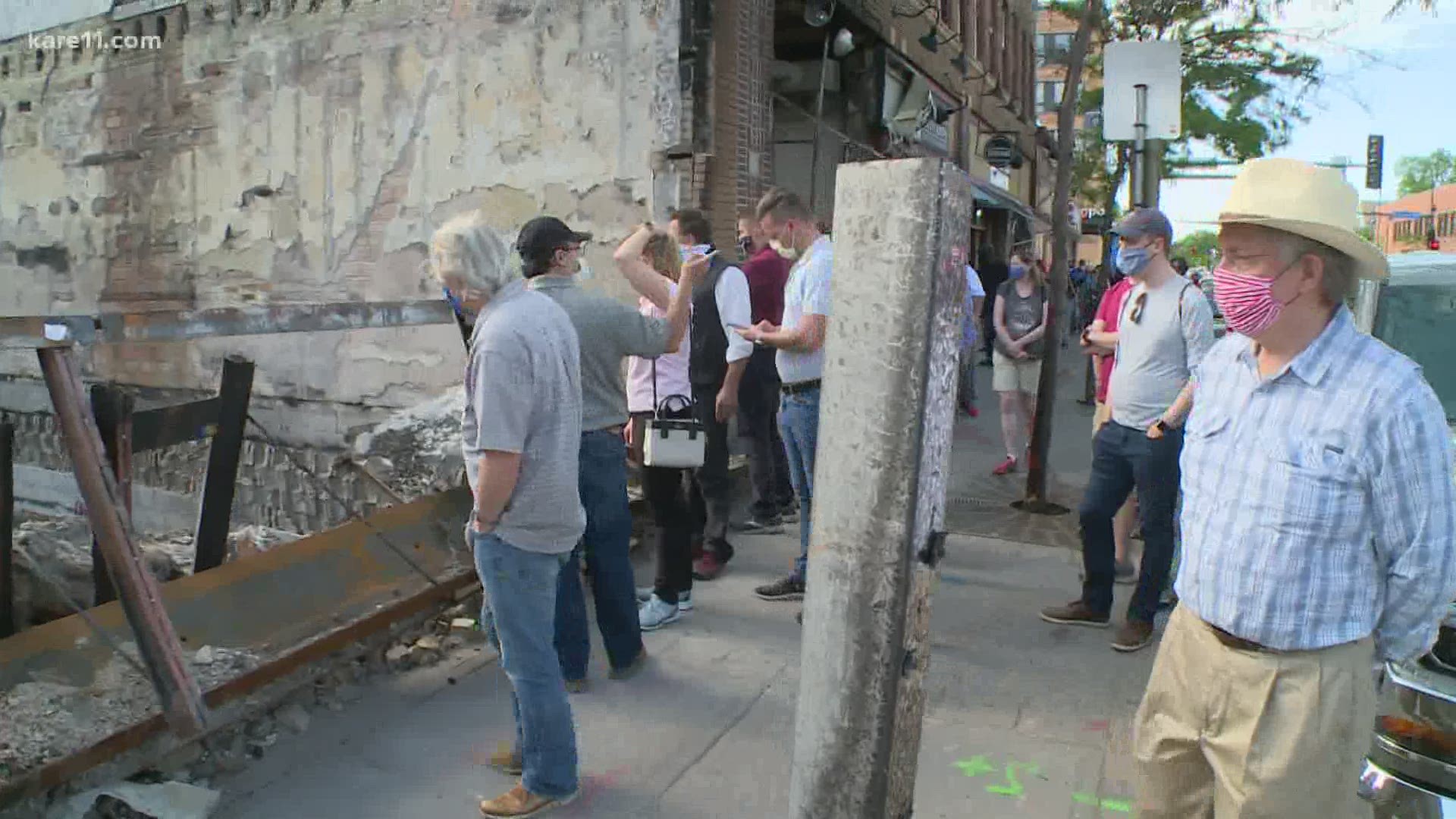MINNEAPOLIS — Minnesota lawmakers are divided over the urgency of making reforms aimed at preventing fatal encounters with police in the wake of George Floyd's death.
DFL lawmakers want to see some of those criminal justice bills taken up in Friday's special session, while Republican leaders say the proposals need to be fully vetted through the legislative committee process.
"To actually expect that to be done in the next week is not how the legislative bodies work," GOP Senate Majority Leader Paul Gazelka told reporters.
"We meet in committees and we fully vet issues to make sure we get it right because it’s not just now, this is or a generation to come."
Senate Democrats say police reforms deserved the same type of urgent action that lawmakers take in the wake of natural disasters, when people need help immediately.
"We acknowledge we can’t fix everything in one day, week or month but Minnesota and America is watching to see what our first step will be," Senate Minority Leader Susan Kent remarked.
"We have the opportunity to set the bar high and lead by example, not to tip-toe around the issue of racial injustice."
Sen. Jeffrey Hayden, a Minneapolis Democrat, said the Senate should seriously consider some of the reforms being offered by the House's POCI Caucus -- Persons of Color and Indigenous lawmakers.
Those reforms those include:
- Attorney General handles all officer-involved homicides
- Changing use-of-force laws to make it easier to prosecute police
- Creating a new crime of unjustified use of force
- More racial diversity for the Peace Officer Standards and Training board
- Prohibit departments from using "Bullet-Proof Warriors" style of training
"It's personal. George Floyd died eight blocks from my house, literally. He’s a guy that looks like me," Sen. Hayden explained.
"It’s could’ve been me, easily been me or my son or all of the black and brown children in this district."
Sen. Gazelka said many police department across the state are highly respected by their local communities. He doesn't want to see a response to problems in Minneapolis cause unintentional harm to other police departments.
Gazelka said he visited the intersection of 38th St. and Chicago Avenue in Minneapolis, where George Floyd died Memorial Day after spending more than eight minutes with Officer Derek Chauvin's knee on his neck.
"I believe that Minnesota needs to lead the nation in race reconciliation. We have an opportunity, this is opportunity that comes around once in a generation," Gazelka explained.
"I believe we will have hearings relatively soon but to promise June 12th, when I know what the legislative process takes is not realistic."
Gazelka said the Senate has already passed many criminal justice reforms aimed at creating more equity in the system. But Republicans have also blocked some reforms passed by the DFL-controlled House.
For instance, a bill that would automatically restore voting rights to people when they're released from prison hasn't gotten any traction in the GOP-controlled Senate. The Senate majority also pushed away efforts to cap probation at five years in most cases.
When the Minnesota Sentencing Guidelines Commission voted to limit probation to five years, Senate Republicans introduced a bill aimed at undoing that independent board's decision. Minnesota has some of the longest probation periods in the nation, and that burden falls disproportionately on persons of color.
In the meantime, lawmakers have been visiting places that were devastated by the looting and fires that ensued from protests sparked by Floyd's death. There will be mounting pressure on lawmakers to send state aid to help those communities rebuild, recognizing that local tax revenue and charitable donations won't be enough.
"My appeal to Republican lawmakers and leaders is we have got to find a way to get agreement, to get things done, because the people of Minnesota need for us to act," Democratic House Speaker Melissa Hortman said Monday during a tour of damaged businesses along West Broadway Ave. in north Minneapolis.


